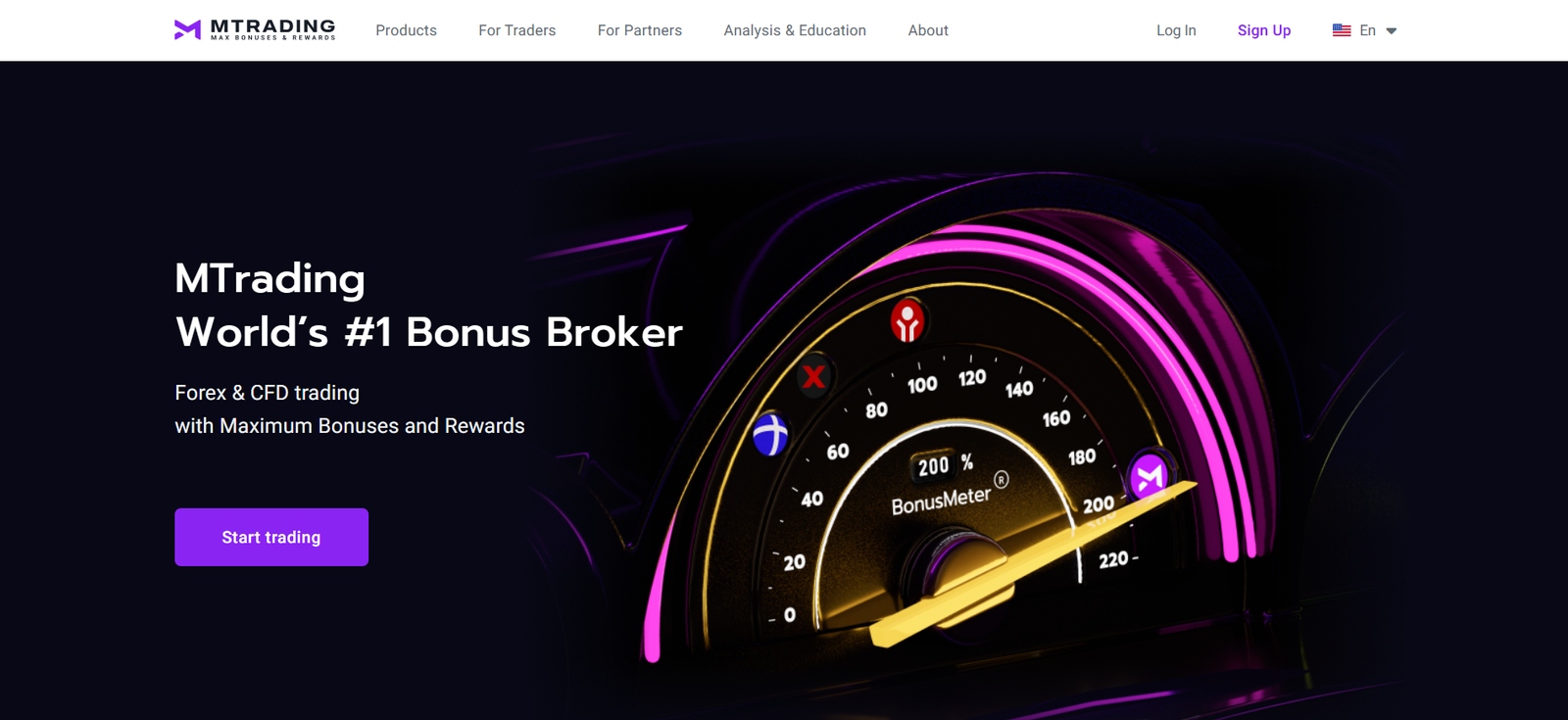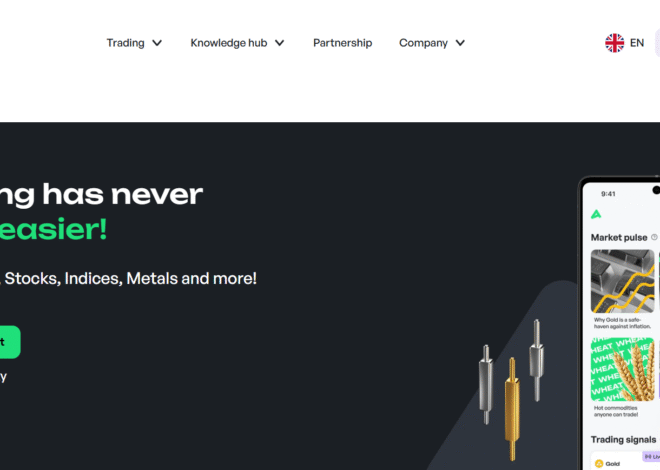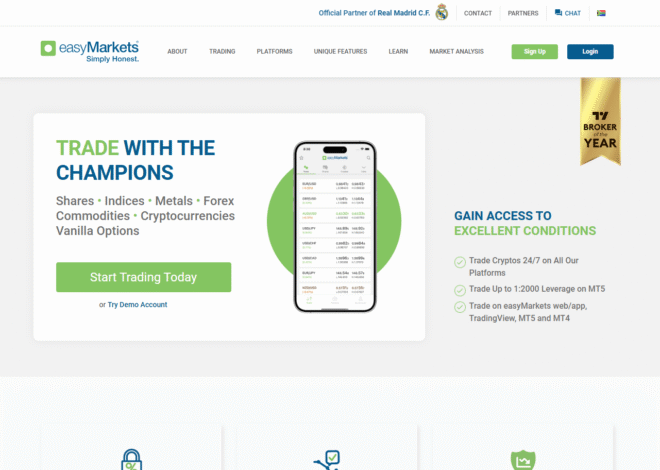
URGENT: MTrading Scam Warning – Don’t Invest!
The allure of quick profits in the volatile world of online trading can be intoxicating, drawing in countless individuals eager to grow their wealth. However, beneath the surface of slick marketing and promises of financial freedom, a dangerous landscape of unregulated brokers and potential scams often lurks. Our investigation unit has turned its critical lens on MTrading, a platform that has increasingly surfaced in investor discussions and online forums, raising serious concerns. This comprehensive report serves as an urgent warning, detailing the numerous red flags, user complaints, and regulatory deficiencies that demand your immediate attention before you consider entrusting your hard-earned capital to MTrading.
Our objective is clear: to expose the truth about MTrading and equip potential investors with the factual basis to make informed, cautious decisions. We delve into their regulatory standing, dissect the alarming patterns of user complaints, scrutinize their marketing tactics, and highlight the critical issue of withdrawal problems that plague many who engage with this platform. The evidence we’ve compiled paints a concerning picture, suggesting that MTrading may not be the legitimate investment partner it purports to be. Read on to understand why a significant number of individuals are now asking: “Is MTrading a scam?”
Regulatory Warnings and Compliance Issues
One of the foundational pillars of trust in any financial institution is robust regulatory oversight. A reputable broker operates under the strict guidelines of recognized financial authorities, offering investors a layer of protection and recourse. Our investigation into MTrading reveals a deeply troubling lack of credible regulation, a red flag that should immediately put any cautious investor on high alert.
MTrading often presents itself as a global broker, but a closer examination of its operational licenses and jurisdictional registrations paints a far more opaque picture. While they may claim registration in obscure offshore locations, these often provide minimal to no genuine investor protection. Unlike brokers regulated by tier-one authorities such as the Financial Conduct Authority (FCA) in the UK, the Australian Securities and Investments Commission (ASIC), or the Cyprus Securities and Exchange Commission (CySEC) in the EU, MTrading appears to operate largely outside these stringent frameworks. This absence of oversight means that your funds are not protected by investor compensation schemes, nor is the broker held accountable to transparent financial reporting or ethical conduct standards.
The Illusion of Regulation
MTrading frequently leverages vague statements about being “licensed” or “registered” without specifying which reputable body provides this oversight. Our findings indicate that any licenses they do hold are often from jurisdictions known for lax financial regulations, effectively offering a veneer of legitimacy without the substance. These jurisdictions typically have weak enforcement mechanisms, making it incredibly difficult for clients to seek justice or recover funds in the event of misconduct. This strategy is a common tactic among platforms that are not prepared to meet the rigorous demands of established financial regulators. The lack of proper regulatory scrutiny means MTrading can operate with little accountability, potentially engaging in practices that would be strictly prohibited in more regulated environments. Investors must understand that a ‘registration’ in an offshore haven is not equivalent to a ‘license’ from a respected financial authority that actively supervises and enforces rules to protect consumers. This regulatory ambiguity is a critical MTrading scam indicator.
Analysis of User Complaints: A Pattern of Distress
Beyond the official paperwork, the true test of a broker’s integrity lies in the experiences of its users. A deep dive into online forums, consumer review sites, and direct testimonials reveals a disturbing pattern of complaints against MTrading. These aren’t isolated incidents but rather a consistent narrative of dissatisfaction and financial distress, painting a grim picture for potential investors. The sheer volume and consistency of these complaints are a significant warning sign that cannot be ignored.
Common themes among MTrading complaints include:
- Withdrawal Issues: This is by far the most prevalent and alarming complaint, detailed further below.
- Aggressive Sales Tactics: Users report relentless calls and pressure to deposit more funds.
- Account Manipulation: Allegations of trades being closed prematurely, prices being manipulated, or accounts being frozen without explanation.
- Unresponsive Customer Service: Difficulty reaching support, or receiving unhelpful and evasive responses when issues arise.
- Misleading Information: Discrepancies between what was promised and what was delivered, particularly regarding bonuses and trading conditions.
These recurring issues suggest systemic problems within MTrading‘s operations, rather than mere isolated customer service glitches. The frustration and financial losses reported by numerous individuals highlight the potential risks involved.
Withdrawal Problems: A Major Red Flag
Perhaps the most damning evidence against MTrading comes from the overwhelming number of reports concerning severe withdrawal difficulties. Time and again, users report that depositing funds is seamless and encouraged, but attempting to withdraw profits or even initial capital becomes an arduous, often impossible, task. This is a classic hallmark of a fraudulent operation.
Users describe a litany of excuses and delays:
- Excessive Verification Demands: Requesting endless new documents, even after initial verification.
- Unjustified Fees: Sudden introduction of exorbitant fees that eat into withdrawal amounts.
- Technical Glitches: Claiming system errors prevent withdrawals.
- Bonus Traps: Tying withdrawals to impossible trading volume requirements linked to “bonuses” that were often unsolicited or misunderstood.
- Outright Refusal: Simply ignoring withdrawal requests or ceasing communication.
Many individuals recount how their funds, once deposited with MTrading, effectively became inaccessible. This inability to retrieve one’s own money is not merely poor service; it is a fundamental breach of trust and a direct indicator of potential financial misconduct. For any legitimate financial institution, facilitating withdrawals is a core function, not a hurdle. The pattern of withdrawal issues associated with MTrading should serve as a flashing red light for anyone considering their platform. If you can’t get your money out, it’s not truly yours. This is a critical MTrading warning.
Aggressive Sales Tactics and Misleading Promises
Many individuals who have engaged with MTrading report being subjected to aggressive and high-pressure sales tactics. These often begin shortly after an initial small deposit, with “account managers” or “senior analysts” pushing clients to invest significantly larger sums, promising unrealistic returns and guaranteed profits. This approach directly contradicts the fundamental principle that all trading involves risk and that no returns can be guaranteed.
These tactics include:
- Constant Phone Calls: Relentless calls and emails, often at inconvenient hours, urging further deposits.
- Pressure to “Act Now”: Creating a false sense of urgency to commit more funds, often tied to “limited-time offers” or “exclusive opportunities.”
- Misrepresenting Risk: Downplaying or outright ignoring the inherent risks of trading, focusing solely on potential gains.
- Promising Expert Guidance: Suggesting that their “experts” will manage your account to ensure profitability, a practice often associated with scam brokers.
- Bonus Pressure: Enticing clients with “bonuses” that come with onerous and often unachievable trading requirements, effectively locking in funds.
Such aggressive and misleading sales practices are highly unethical and are frequently employed by unregulated entities to extract as much capital as possible from unsuspecting investors. A legitimate broker provides information and tools; they do not pressure clients into making decisions against their best interests. The consistent reports of these practices reinforce the severe concerns surrounding MTrading.
Deceptive Marketing Tactics and Unrealistic Returns
The online landscape is rife with platforms promising easy wealth, and MTrading appears to leverage similar deceptive marketing tactics to lure in unsuspecting individuals. Their promotional materials often paint a picture of effortless financial success, contrasting sharply with the harsh realities of the volatile trading markets. Such misleading claims are a cornerstone of many online trading scams.
Unrealistic Profit Guarantees Exposed
Legitimate financial trading involves significant risk, and even seasoned professionals experience losses. However, MTrading’s promotional content and sales representatives often hint at, or explicitly promise, high returns with minimal risk. These “too good to be true” scenarios are designed to exploit the hopes and financial aspirations of potential investors. They might showcase fabricated testimonials or doctored screenshots of massive profits, creating an illusion of success that is rarely, if ever, achievable for the average trader. This deceptive portrayal of trading reality is a significant red flag, as no reputable broker would ever guarantee profits or downplay the inherent risks. Any platform that does so should be approached with extreme caution, as it’s often a precursor to a financial trap. Always remember, if it sounds too good to be true, it almost certainly is. This is a primary MTrading warning.
Hidden Fees and Account Manipulation
Another common complaint against MTrading involves opaque fee structures and alleged account manipulation. Users report being surprised by unexpected charges, commissions, or spreads that were not clearly disclosed upfront. These hidden costs can significantly erode potential profits, making it even harder for traders to break even, let alone make a gain.
Furthermore, there are serious allegations of MTrading engaging in practices that manipulate trading outcomes. This can include:
- Stop-Loss Hunting: Deliberately triggering stop-loss orders by briefly moving prices against the client’s position.
- Requotes and Slippage: Consistently offering less favorable prices than requested, or executing trades at significantly worse prices, especially during volatile periods.
- Platform Freezes: The trading platform freezing or becoming unresponsive during critical market movements, preventing clients from managing their trades.
- Unilateral Account Closures: Accounts being closed or positions liquidated without prior notice or valid explanation, particularly if a client is profiting.
Such practices are indicative of a broker acting against the best interests of its clients and potentially engaging in outright fraud. These actions undermine trust and make it impossible for clients to trade fairly. The combination of hidden fees and potential account manipulation makes trading with MTrading a perilous endeavor, where the odds are stacked heavily against the investor.
The MTrading Trading Platform: Technical Glitches or Deliberate Issues?
While MTrading presents itself with a professional-looking trading platform, numerous user reports suggest that its functionality is far from reliable. These aren’t just minor bugs; they are often critical issues that can directly impact a trader’s ability to execute trades effectively and manage risk. The question arises whether these are genuine technical glitches or deliberate operational shortcomings designed to benefit the broker at the client’s expense.
Reported platform issues include:
- Frequent Disconnections: The platform often disconnecting, especially during crucial market events.
- Slow Execution Speeds: Orders taking an unusually long time to execute, leading to significant price slippage.
- Inaccurate Price Feeds: Discrepancies between MTrading’s price feeds and those of reputable, independent data providers.
- Unresponsive Interface: The platform becoming unresponsive, making it impossible to close losing trades or open new ones.
Such persistent issues are not merely inconvenient; they can lead to substantial financial losses for traders. In a fast-paced environment like online trading, every second counts. A platform that consistently underperforms or malfunctions puts clients at an extreme disadvantage. While some technical issues can occur, the consistent and critical nature of these reports concerning MTrading raises serious questions about the platform’s integrity and whether these “glitches” are, in fact, deliberate mechanisms to hinder profitable trading and facilitate losses for clients. This directly impacts the trustworthiness of MTrading.
Protecting Yourself from MTrading and Similar Scams
The findings of our investigation into MTrading paint a stark picture of a platform fraught with risks. For anyone considering online trading, it is crucial to exercise extreme vigilance and due diligence. Protecting your investments starts with recognizing the red flags and understanding how to navigate the complex world of online brokers.
Here are essential steps to safeguard yourself:
- Verify Regulation: Always check if a broker is regulated by a reputable, tier-one financial authority (e.g., FCA, ASIC, CySEC, FINRA, BaFin). Do not trust claims; verify directly on the regulator’s official website. Offshore registrations are often insufficient.
- Research Thoroughly: Before depositing any funds, search for independent reviews and complaints online. Look for consistent patterns, especially regarding withdrawals and customer service. Sites like Trustpilot, ForexPeaceArmy, and Reddit often host real user experiences.
- Beware of Unrealistic Promises: If a broker guarantees high returns with little to no risk, it’s almost certainly a scam. Trading involves inherent risks, and losses are always possible.
- Avoid Pressure Tactics: Legitimate brokers do not pressure clients into making deposits or taking specific trades. Be wary of “account managers” who constantly call and push for more investment.
- Understand Bonuses: Be extremely cautious of trading bonuses. They often come with complex terms and conditions, specifically high trading volume requirements that can trap your funds, making withdrawals impossible.
- Start Small: If you decide to test a new broker, start with the absolute minimum deposit. Attempt a small withdrawal early on to test their process. If issues arise, you’ve limited your exposure.
- Educate Yourself: Understand the basics of trading and risk management. Knowledge is your best defense against deceptive practices. You can find valuable resources on identifying fraudulent schemes by reading articles like [How to Spot a Trading Scam].
- Secure Your Devices: Ensure your computer and internet connection are secure to prevent unauthorized access to your trading accounts.
Steps to Take If You’ve Been Affected by MTrading
If you believe you have been a victim of MTrading or a similar scam, immediate action is crucial:
- Cease All Communication: Stop interacting with MTrading representatives. Do not send any more money, and do not provide any more personal information.
- Gather Evidence: Collect all relevant documentation: emails, chat logs, transaction records, bank statements, screenshots of your account, and any communication with MTrading.
- Contact Your Bank/Payment Provider: Inform your bank or credit card company immediately about the suspected fraud. They may be able to initiate a chargeback or stop payments. Time is often critical for chargebacks.
- Report to Authorities: File a formal complaint with relevant financial regulatory bodies in your jurisdiction (e.g., FCA, ASIC, SEC, your national police force, or fraud reporting agencies like the FBI’s IC3). Provide them with all the evidence you’ve gathered.
- Seek Legal Advice: Consider consulting with a legal professional specializing in financial fraud. They can advise you on potential avenues for recovery.
- Warn Others: Share your experience on reputable consumer review websites and forums to help prevent others from falling victim.
For further guidance on choosing a secure trading platform, consult resources such as [Guide to Choosing a Regulated Broker].
Conclusion: A Resounding Warning Against MTrading
Our exhaustive investigation into MTrading has uncovered a multitude of red flags that collectively paint a highly concerning picture. From a severe lack of reputable regulatory oversight and a disturbing pattern of user complaints – particularly concerning withdrawal issues – to aggressive sales tactics and deceptive marketing, the evidence strongly suggests that MTrading operates in a manner that prioritizes its own interests over the financial well-being of its clients.
The consistent reports of inaccessible funds, manipulated trading conditions, and unresponsive customer service are not coincidental; they form a systemic pattern commonly associated with fraudulent online trading operations. We urge all potential investors to heed this urgent warning: the risks associated with MTrading appear to be exceptionally high, and the potential for significant financial loss is a very real threat.
Do not be swayed by slick websites or promises of easy wealth. Prioritize the security of your capital by dealing exclusively with transparent, well-regulated brokers. If you have already engaged with MTrading and experienced issues, we strongly advise you to report your experience to the appropriate financial authorities and consumer protection agencies immediately. Your vigilance can help protect not only your own finances but also those of others.
External Links Reference Table
| Anchor Text | URL |
|---|---|
| FCA Website (General Scam Warning) | https://www.fca.org.uk/consumers/scams-and-fraud |
| ASIC Consumer Protection (Investment Warnings) | https://moneysmart.gov.au/investment-warnings |
| FBI Warns Investors Against Unscrupulous Investment Platforms (IC3) | https://www.ic3.gov/media/fbi-warns-investors-against-unscrupulous-investment-platforms |


